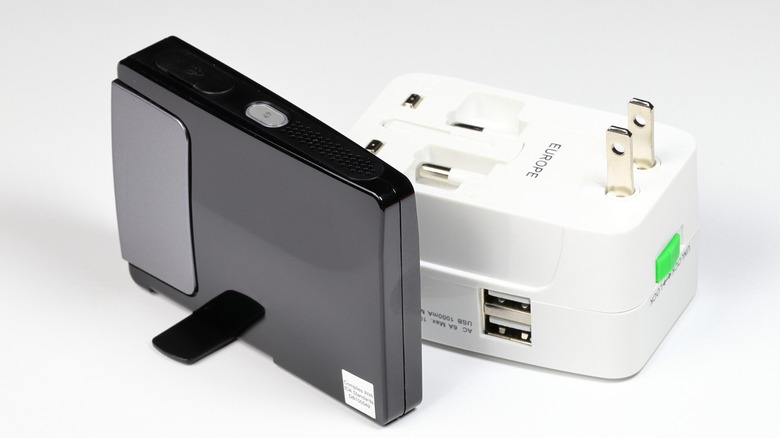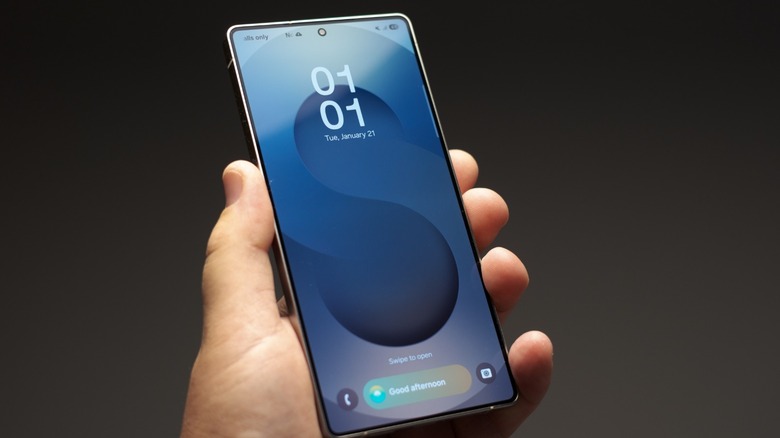What Is A Travel Router And How Does It Work?
Almost everyone has a phone with them, and some even bring a laptop whenever they travel. Tech enthusiasts might have even more, including a tablet and a handheld gaming console — all of which connect wirelessly to the internet. If you have a companion, they most likely have their own phone, plus a few more gadgets. That means you likely have two to four Wi-Fi devices at a minimum, which can be a problem if the hotel you're staying at only lets you connect two devices at a time to its Wi-Fi network.
This is where the travel router comes in. A travel router is basically the same as the router in your house, except that it's smaller and more portable. Some models are even battery-powered and come with a SIM slot, allowing you to run them as a wireless hotspot. This makes accessing the internet on your various devices much more convenient, as you don't have to set up the username and password for each one. Aside from that, it will give you a wireless access point near you if you check into a hotel that just offers a wired Ethernet connection. It can also serve as a wireless repeater if the Wi-Fi signal is spotty near your bed, but good enough near another spot in your room.
Public, unencrypted Wi-Fi is dangerous
More importantly, most public Wi-Fi, including the ones that ask for a username and password in most hotels, is unencrypted. So, if you connect directly to the Wi-Fi network and don't use a VPN, your devices send and receive data across it without any encryption. This makes you vulnerable to anyone who knows how to intercept the data sent over the internet, including your credentials and passwords. But if you set up a VPN on your travel Wi-Fi, it will scramble the data coming from your devices before sending it wirelessly over Wi-Fi.
So, even if someone manages to intercept the data from your travel router, they won't be able to understand it because of the encryption. This is often far more convenient than setting up multiple VPN apps on all your gear, as you just have to set up one of the best VPN services on the travel router once. Then you can seamlessly connect to the internet no matter what device you're using or network you're connected to.
A travel router alternative in your pocket
If you don't want to buy one of the best wireless travel routers, you can achieve the same kind of protection with an Android phone — note that this isn't possible for all models, so you need to check if your device can connect to Wi-Fi and turn on its hotspot simultaneously. Furthermore, iPhones do not have this capability. But if your smartphone (like a Samsung S24 Ultra) can do this, you can ditch the travel router and use it as a Wi-Fi repeater instead.
With this, you can just connect your phone to the public Wi-Fi, turn on its hotspot, and then connect all the rest of your devices to it. Note that this will use up your battery, so it's advisable to charge your device while you're using it. We would also recommend turning off its cellular data, so you don't accidentally use up all of your data allocation if the public Wi-Fi fails or disconnects. Of course, it's best to turn on a VPN on your smartphone to protect your personal data.


